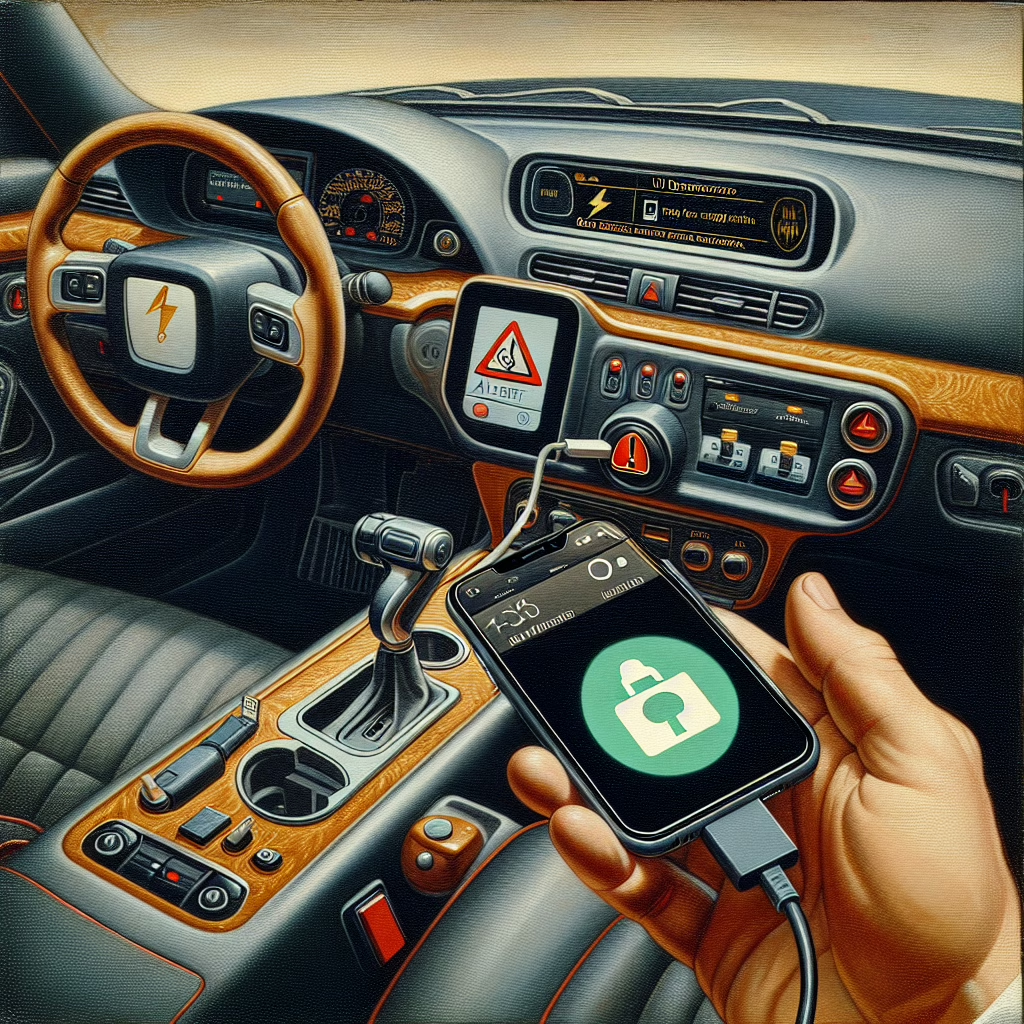In a world where technology advances faster than a cat video goes viral, the UK’s defense sector has thrown a cautionary red flag that’s more noticeable than a neon sign at a dark intersection. Specifically, a UK defense firm is warning its staff against the practice of charging phones in Chinese cars. Yes, you heard that right! While you might think it’s just another quirky tech advisory, it’s rooted in serious security concerns worth discussing.
Why All the Fuss About Charging Phones?
Charging your phone while cruising in your brand-new Chinese automobile may sound harmless, but let’s face it: it’s 2025, and we’ve all learned that nothing is truly innocent. According to industry insiders, this seemingly mundane action could open up a Pandora’s box of cybersecurity risks. Imagine your phone getting hacked faster than you can say “data breach!” It’s not just about convenience; it’s about what lurks beneath the surface.
The UK defense firm highlighted that charging devices could potentially expose sensitive information to malicious actors. Think of your phone as a treasure chest filled with personal data—photos from last weekend’s adventure, embarrassing memes, and perhaps even some top-secret work documents (shh!). By charging in an unfamiliar vehicle, you might unwittingly hand over the keys to your digital castle.
Security Tips for the Road
So what can you do to keep your precious data safe while on the road? Here are a few handy security tips that will make you feel like a cybersecurity ninja:
- Use Your Own Charger: Always use your own charger and USB cables. Think of them as your personal bodyguards. A well-protected phone is a happy phone!
- Avoid Public Charging Stations: Public charging stations are like buffet tables for hackers. Everyone helps themselves, and you never know who’s watching.
- Keep Software Updated: Regularly update your device’s software. It’s like giving your phone a vaccine against cyber threats.
- Turn Off Bluetooth: If you’re not using Bluetooth, turn it off. This simple action can prevent unauthorized access while you’re out and about.
- Be Cautious with Permissions: Always read app permissions carefully. If an app asks for access to your contacts just to play an adorable game, it might be time to hit delete!
Remember, each step you take adds a layer of protection against potential cyber invaders. Innovating your approach to safety can significantly minimize risks while on the road.
The Reality Behind the Warning
This warning from the UK defense firm isn’t just alarmist chatter; it reflects growing concerns about cybersecurity in an increasingly interconnected world. As technology advances, so do the tactics employed by hackers. The idea of charging phones in Chinese cars is merely the tip of the iceberg when it comes to data vulnerability.
Many vehicles today come equipped with sophisticated connectivity features that can inadvertently expose drivers to risks they never saw coming. Moreover, these features can collect data or create channels for malicious attempts into your devices. So next time you’re offered a charge in an unfamiliar ride, think twice—your data may thank you for it later. Indeed, many are advocating for better standards in vehicle cybersecurity to combat these risks.
The Importance of Cyber Hygiene
As we navigate through these technological advancements, understanding the fundamentals of security tips regarding personal devices is crucial. Cyber hygiene, much like personal hygiene, plays a significant role in keeping our digital lives secure. Regularly practicing good cyber hygiene ensures that we keep malicious entities at bay.
Final Thoughts
The UK defense firm’s advisory serves as a wake-up call for all of us navigating the digital landscape. While charging our phones in convenient places may seem like a no-brainer, it’s essential to remain vigilant about our digital security—even when we’re on the move. Issues such as these highlight the importance of fostering a more safe technological environment.
So let’s keep our phones charged safely and avoid becoming unwitting participants in someone else’s hackathon! What are your thoughts on this warning? Have you ever had an experience where tech safety became a concern? Share your experiences below—we’d love to hear from you!
For further reading on cybersecurity, check out our posts on the FBI placing a bounty on Salt Typhoon and how Android 16 adds extra security protections.

